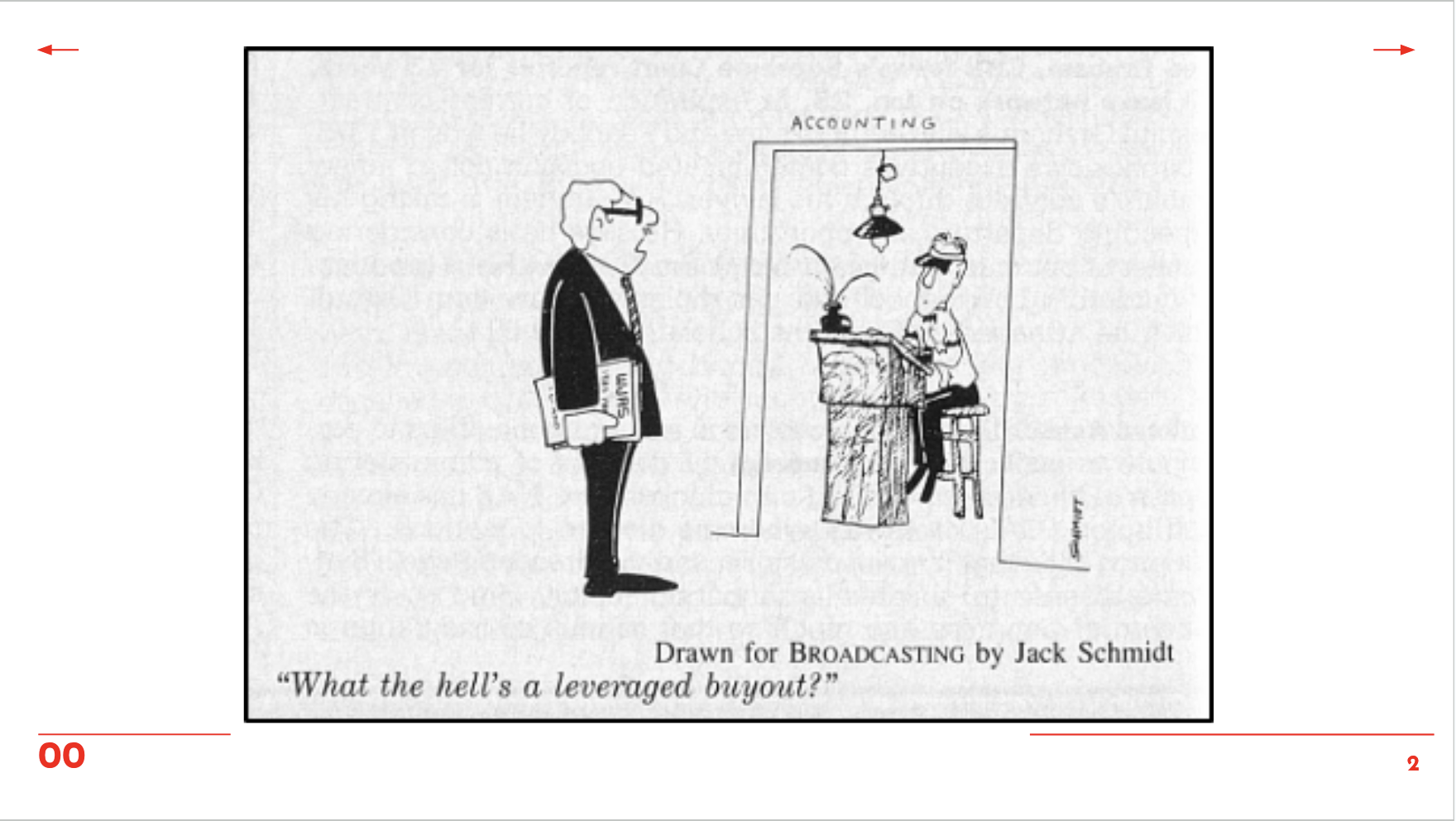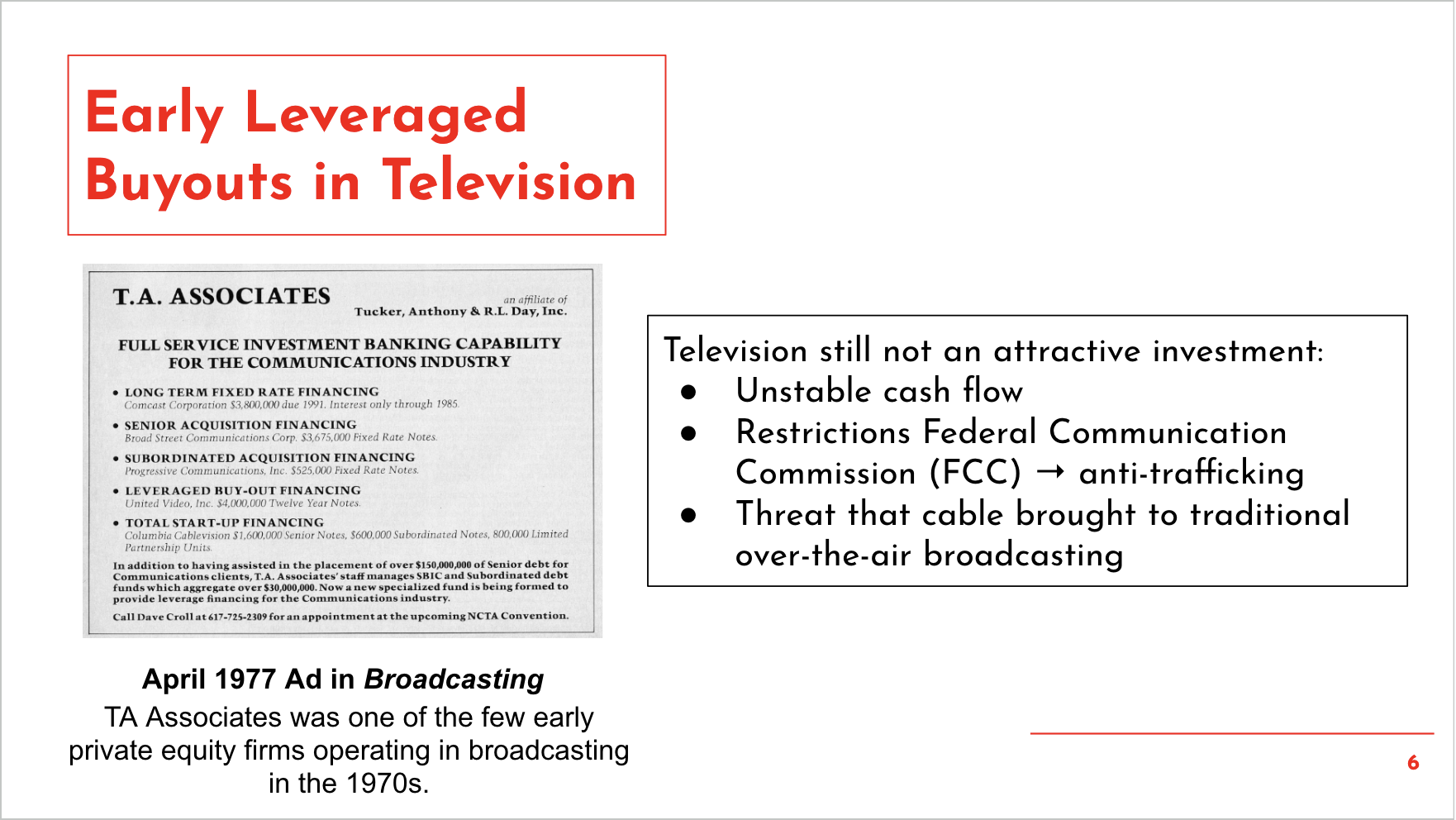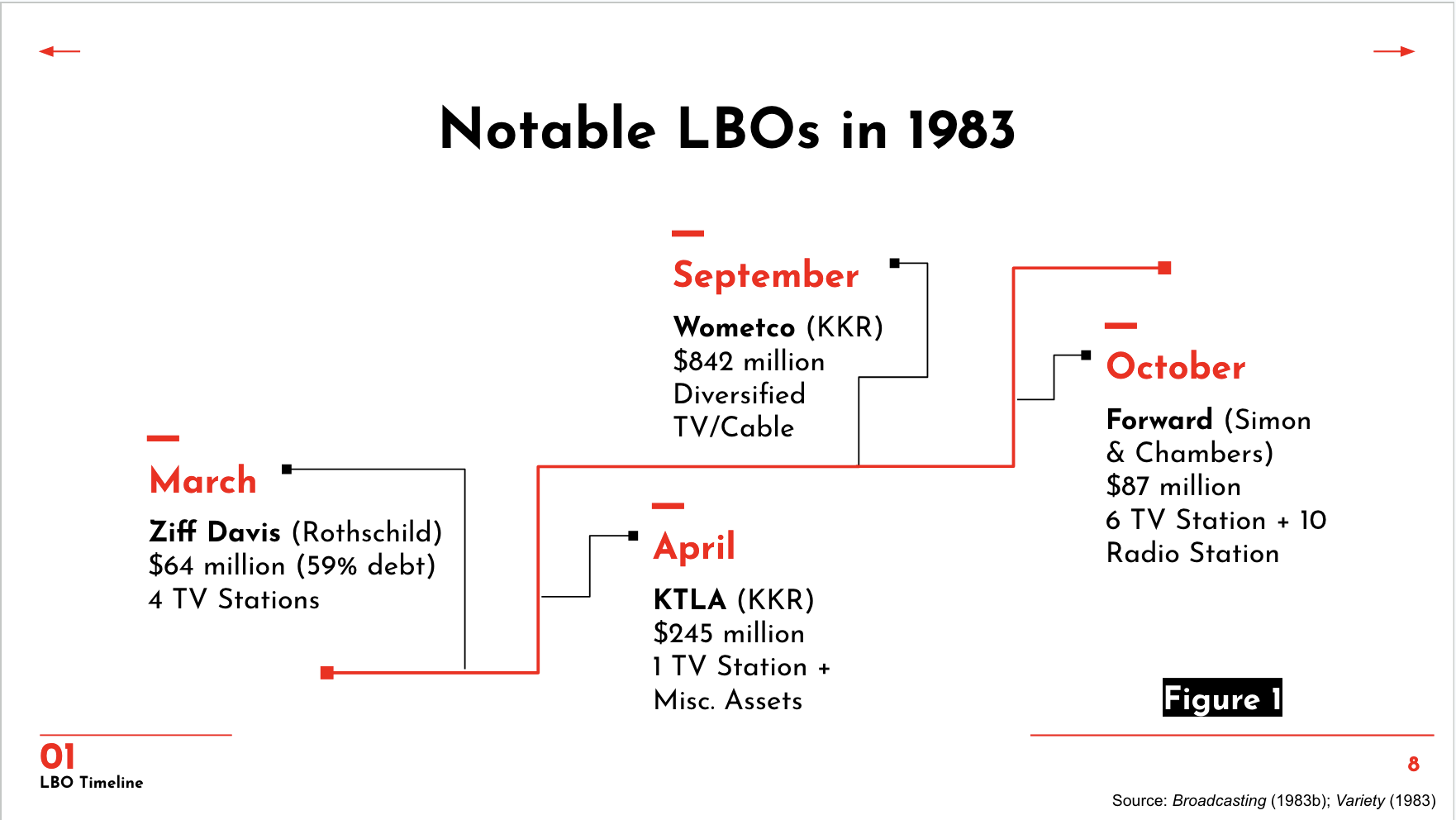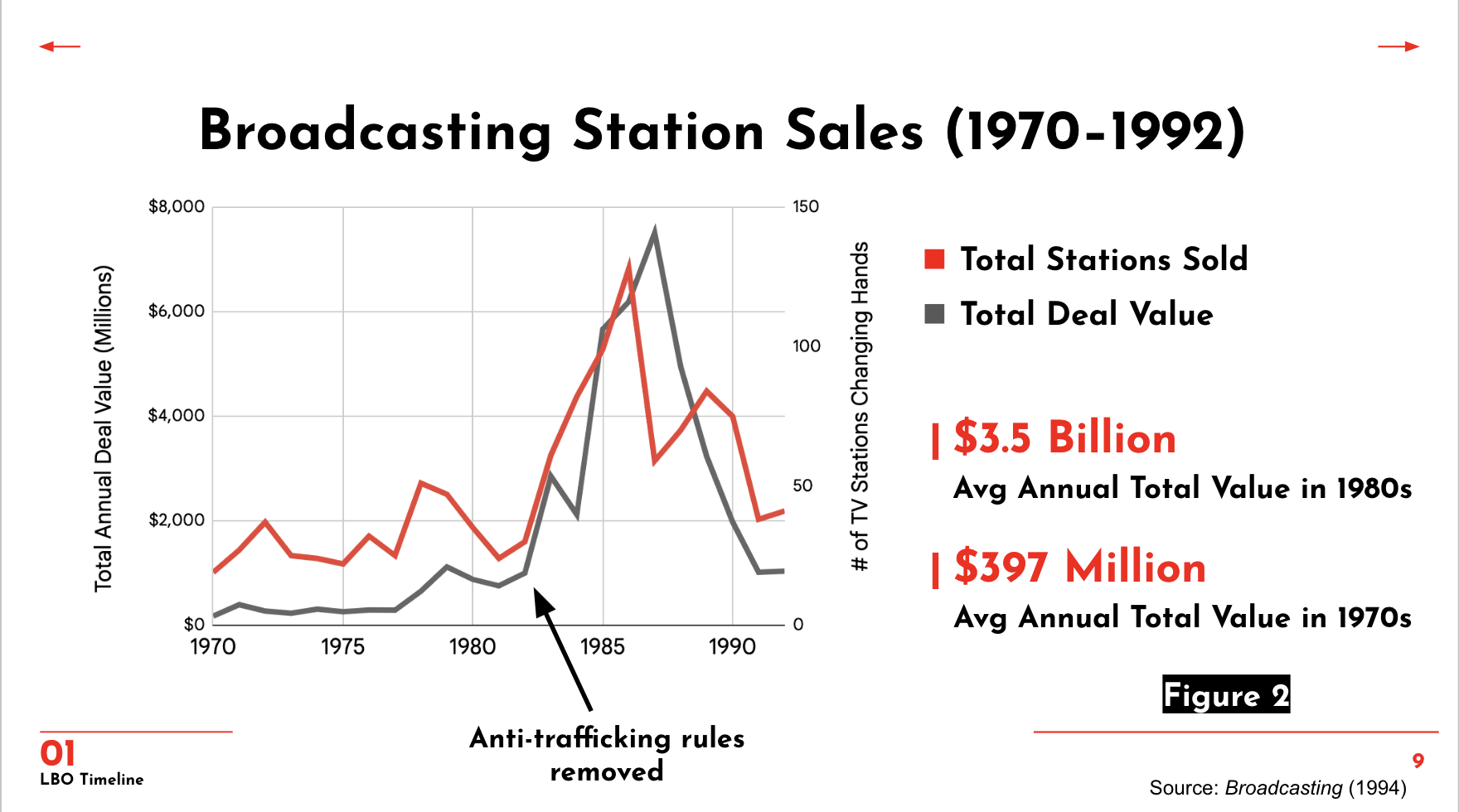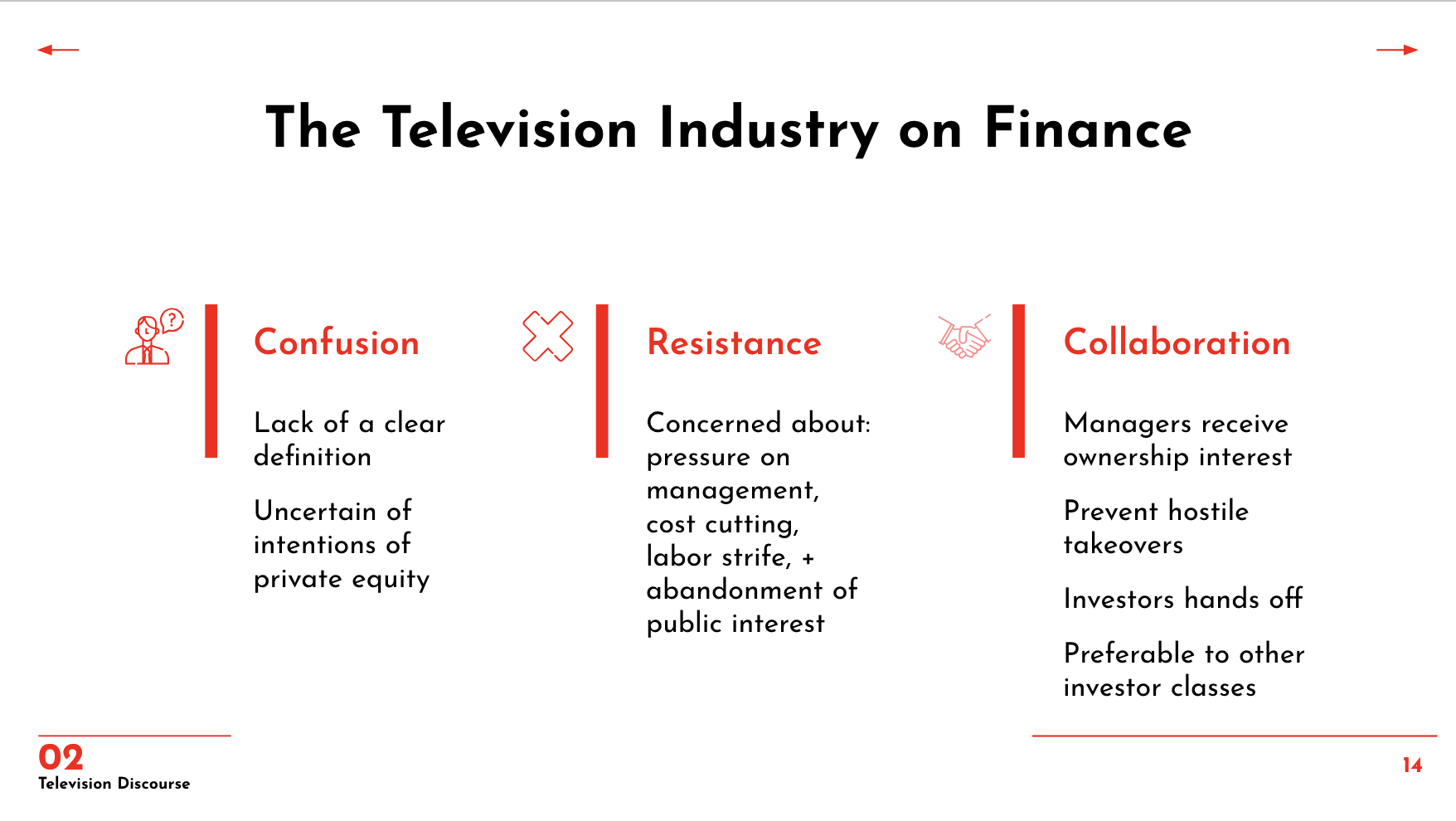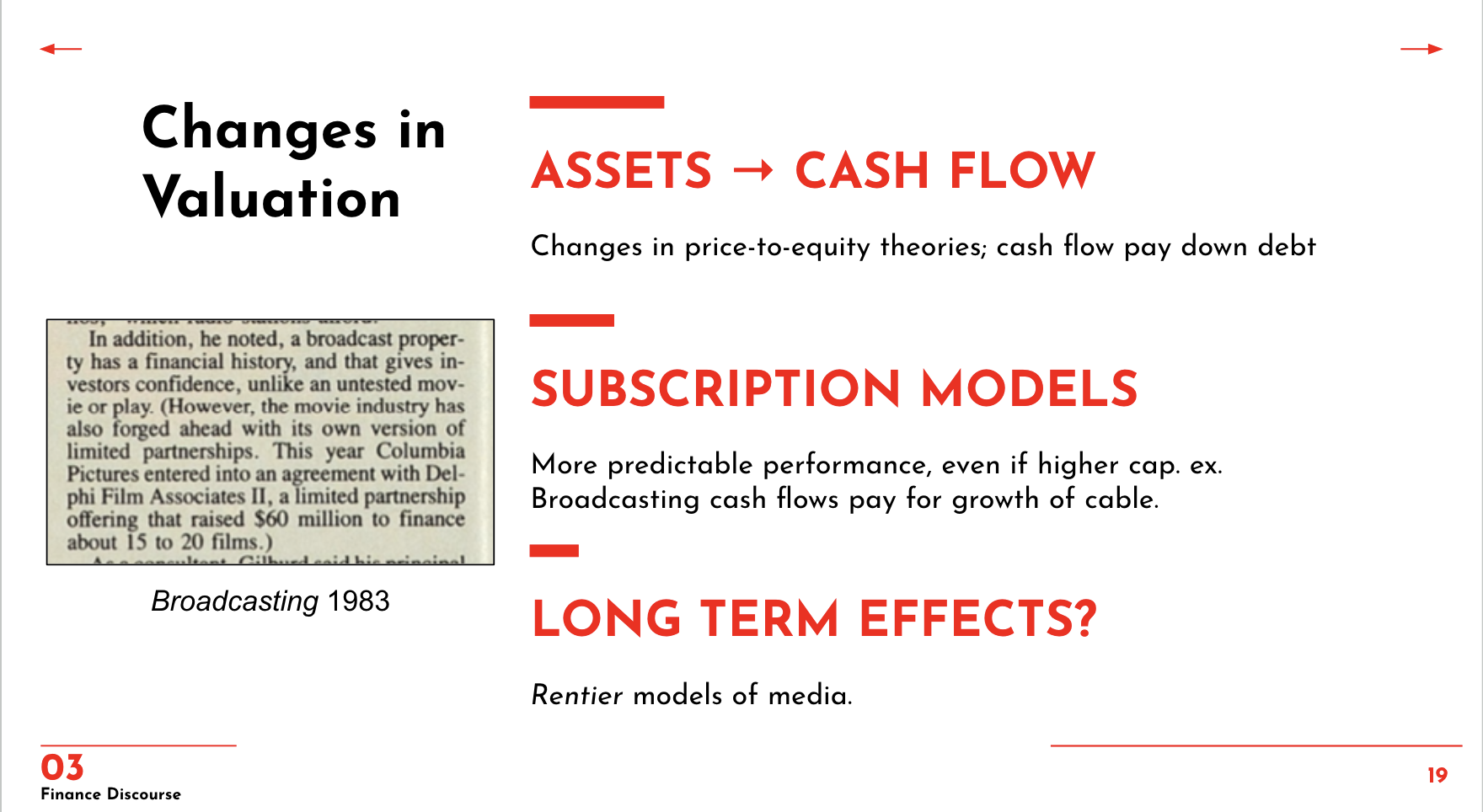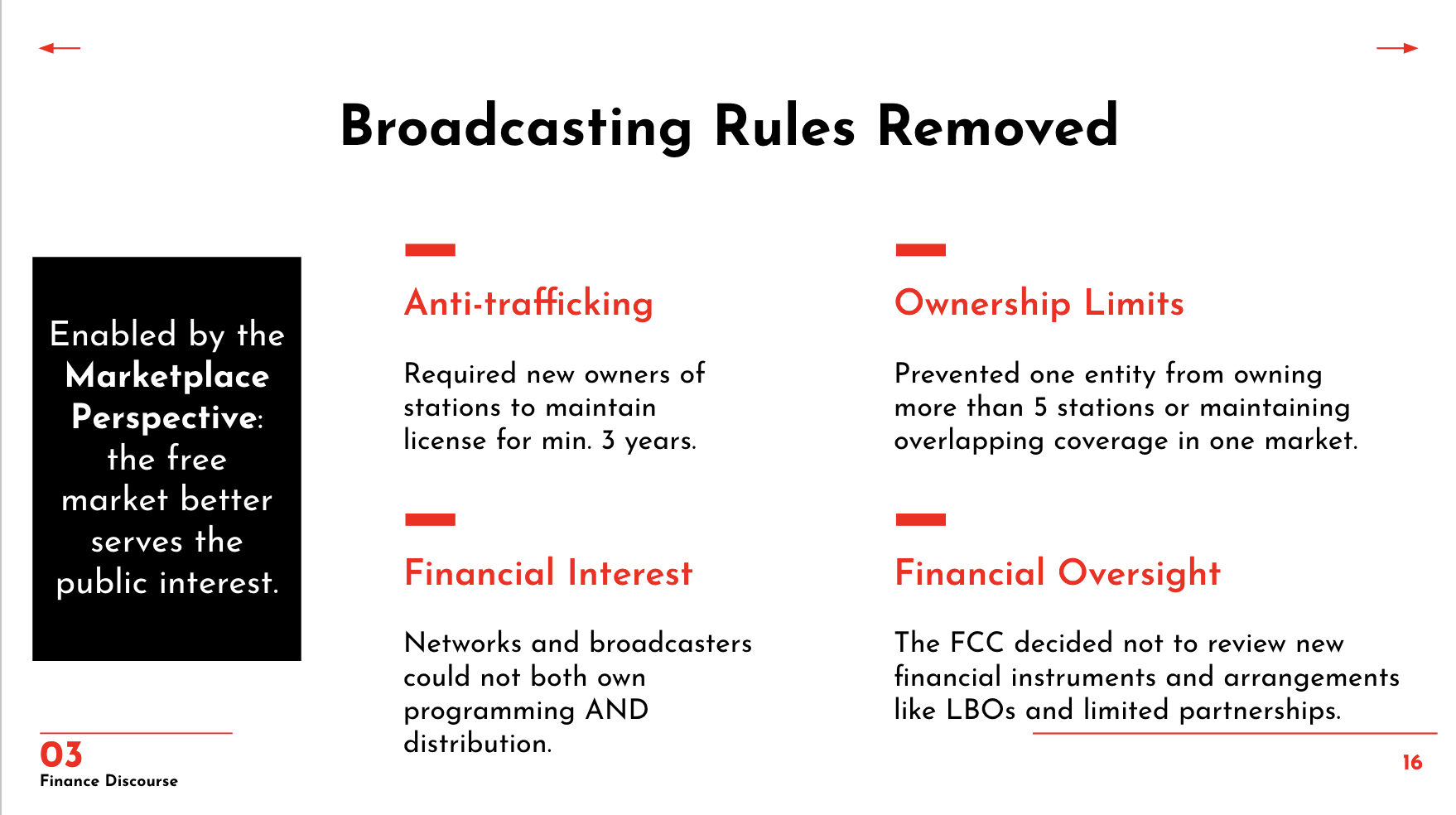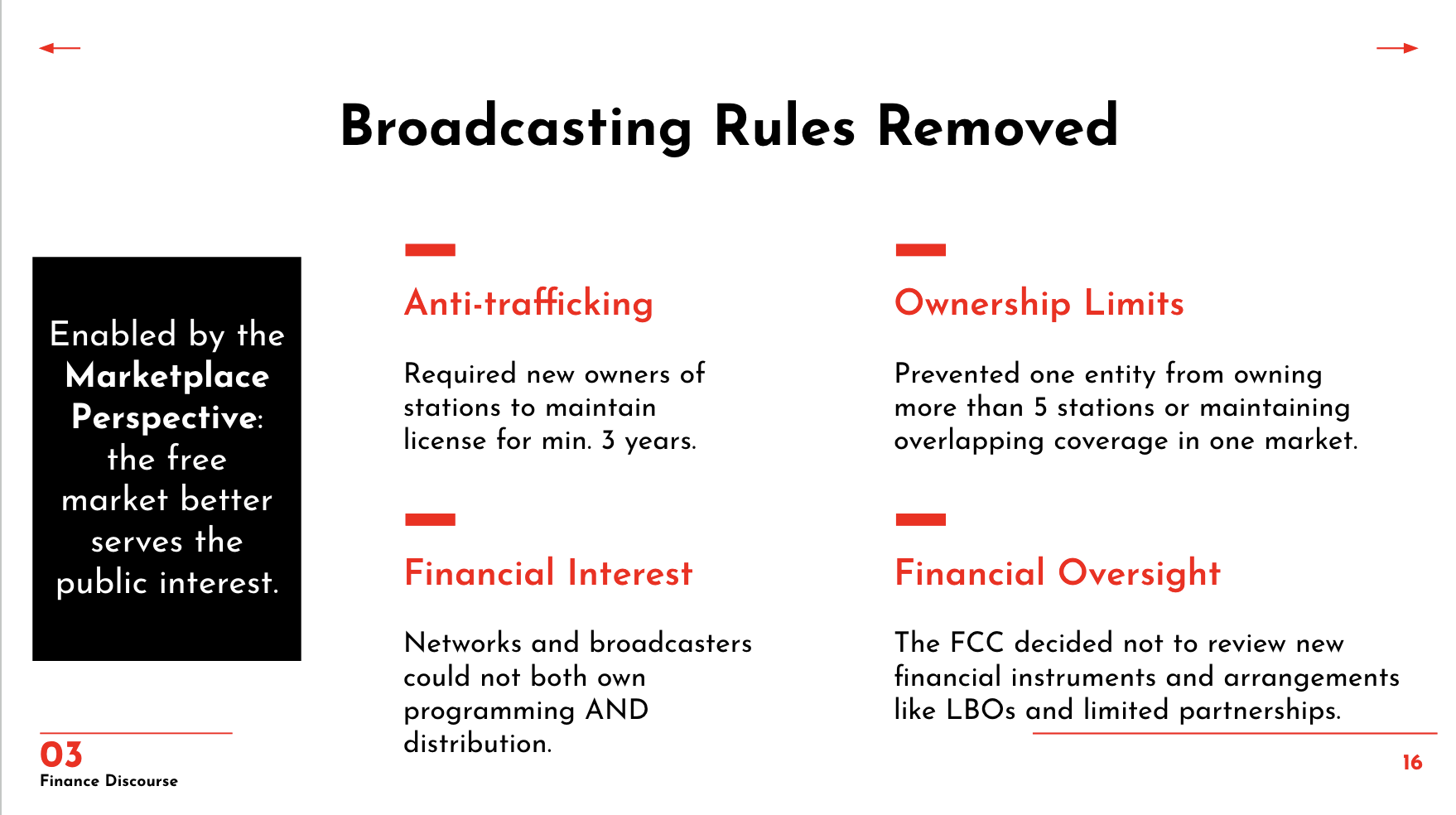The “White Knights” of Showbiz: Junk Bonds & Leveraged Buyouts in 1980s Television
Business History Conference, March 2023
Abstract: In September 1985, Wall Street Journal financial journalist Daniel Hertzberg documented how a new pool of capital led by the private equity firm KKR would “greatly expand [KKR’s] role as a ‘white knight’ in corporate takeover battles” (Hertzberg 1985a). At the same time, the editors of the flagship radio and television trade journal, Broadcasting, remained unaware of this so-called “white knight” status when they joked about the recent influx of debt-financed acquisitions in television, with the quip “What the hell’s a leveraged buyout?” (Broadcasting 1985b). In this paper, I argue that these two anecdotes from these two distinct industry trade sources are paradigmatic of the nascent relationship between the financial sector and the media industries in the earliest stages of the neoliberal era. In particular, I ask the following: How did the television industry make sense of private equity when LBOs proliferated in the early-mid 1980s? And vice versa: How did the finance industry conceive of the television industry amid the LBO boom? To analysts and financial trades, how did television represent a distinctive “asset”?
I will divide this presentation into three sections. First, I provide a short timeline of the emergence of private equity and leveraged buyouts in the television sector. Second, I examine the television trade press discourse on the finance sector from approximately 1980 to 1987. Third, I briefly do the same for the finance industry; here, I also consult brokerage reports to triangulate my findings from the financial trade press. Methodologically, I use a variety of trade press articles, editorials, cartoons, interviews, analyst reports, and industry data as “semi-embedded industry deep texts” (Caldwell 2008) that offer a means of ethnographically “listening in” (Guback 1982) on “frank, insider conversations” (Corrigan 2018) that, in essence, provide insight on the types of conversations occurring in television and finance at this conjuncture. In these sources, I find that, although the finance sector was elated about the opportunities that Reagan-era FCC deregulation provided, the television industry was largely ambivalent about the entrance of new financial investors and instruments.
Select Presentation Slides:

